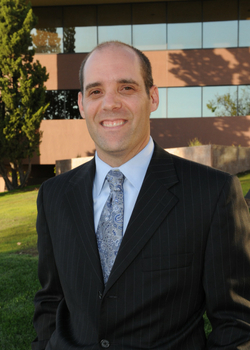Elleh ha'dvarim asher debar Moshe el-kol-Yisrael...
Devarim, the fifth book of the Torah, reveals to us Moses' final discourse to Israel in the last weeks of his life. Moses petitions Bnai Yisrael to follow in God's ways and thus enjoy the rewards of such action. And Moses warns Bnai Yisrael to not act against God, lest they be dispersed among the nations of the world. Essentially, Moses delivers his living will to his people.
Consider the scene. Bnai Yisrael has wandered the desert for nearly 40 years. A generation has died and a new generation has blossomed and is prepared to enter their much-awaited homeland, ready to fight for their survival.
Moses, on the other hand, knows of his ensuing death, and he knows that he will never touch the soil of Eretz Yisrael. Instead, Moses must face the repercussions of having acted against God when striking the rock before all of Israel.
Moses's pain can be measured against Israel's exhilaration with having finally arrived at the border of Eretz Yisrael. Moses must fear not only for Bnai Yisrael's survival, but also for their spiritual fortitude, for Moses knows that Bnai Yisrael will face many challenges of both body and soul as they attempt to conquer and settle the land away from idolaters and their foreign beliefs. Moses must be horrified by the possibility that his constant dedication to God and the many sacrifices that he endured may be for naught. So Moses imparts upon his people the importance and the greatness of their allegiance to Hashem their God. Moses reviews with Israel the laws that will enable them to maintain a relationship with God; he appoints his successor, Joshua, who will lead the people into the land of Israel, and he departs, walking to his eternal resting place, unsure of the effectiveness of his years of dedication.
Moses has raised up his children, he has led them to freedom, but he cannot chose the path of their ultimate journey. And so, as instructed by God, he turns to his own death outside the land of Israel.
Can we not all feel Moses' pain, his sense anxiety, and even hear a bit of desperation in his voice as he calls out to his people? Moses' pain is our pain, for we want our children to take the gifts we provide them, the opportunities that we shower upon them, so they can reach their own potential. We want our youth to carry on our values and our beliefs and make righteous decisions. We want them to give of themselves as we might give of ourselves, we want our descendants - individually and communally - to safely cross their own river Jordan and enter into a land flowing of milk and honey, sensing God's beauty in every delicate breeze and upon every rolling hill. If only we could protect them, keep them safe, and show them this majesty, and give them our own sense of the world. But we can only do so much.
What we can do is communicate, share, AND demonstrate our values through our actions. I was once taught the following verses: "The Lord said to Jehu, "Because you have acted well and done what was pleasing to Me, having carried out all that I desired upon the House of Ahab, four generations of your descendants shall occupy the throne of Israel." But Jehu was not careful to follow the Teachings of the Lord..." (II Kings X, 30-31). Jehu is being instructed by God that through his dedication to God's teachings, four generations will be positively affected by his actions - something that does not actually come to fruition. But the focus of this lesson is on the phrase "four generations."
"Four generations" implies that the impact of our values, when modeled and taught, can generally, with the blessings of long life, be seen at most by our third generation - our great-grandchildren. This fourth generation has little chance of actually interacting with us, and therefore, the test of our values, and the effectiveness of our modeling, comes in the fourth generation - the first of our descendant least likely to have interacted with us directly. Transmitting values is of supreme challenge and importance, and a challenge that requires constant vigilance and intentionality. Transmitting values doesn't occur through osmosis, but by the way of Moses - by sharing, telling and showing.
Throughout Bnai Yisrael's history, and for us today, we stand before a new river Jordan. As the water of our time flows, the river is different today than yesterday and will be different again tomorrow and for tomorrow's generations. Moses, our Father and our Teacher, speaks to us as he has spoken to all previous generations of Jews. We should heed his words well as we begin Devarim anew and strengthen ourselves to emulate these teaching each and every day, for each new generation.
Shabbat Shalom.

